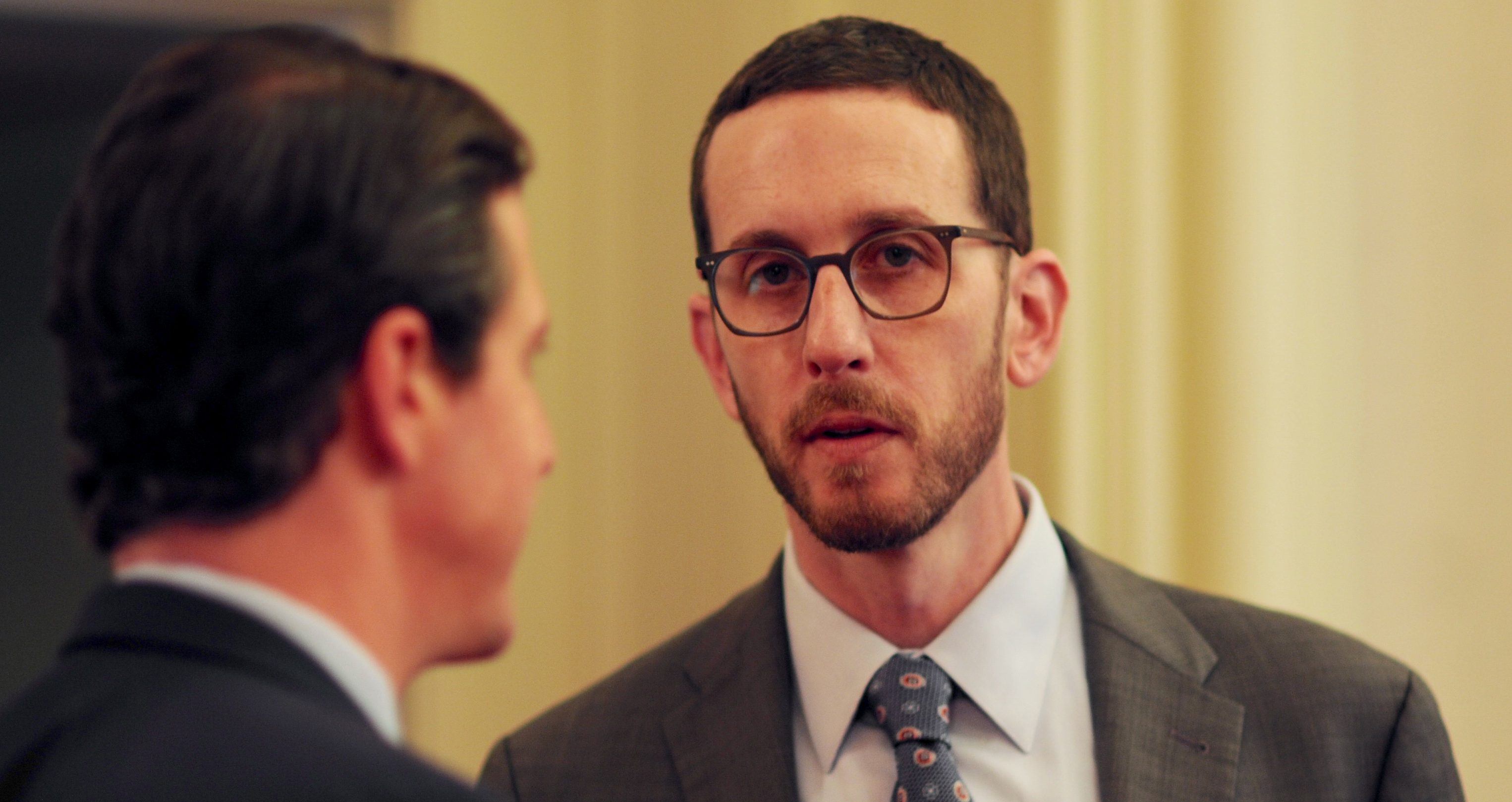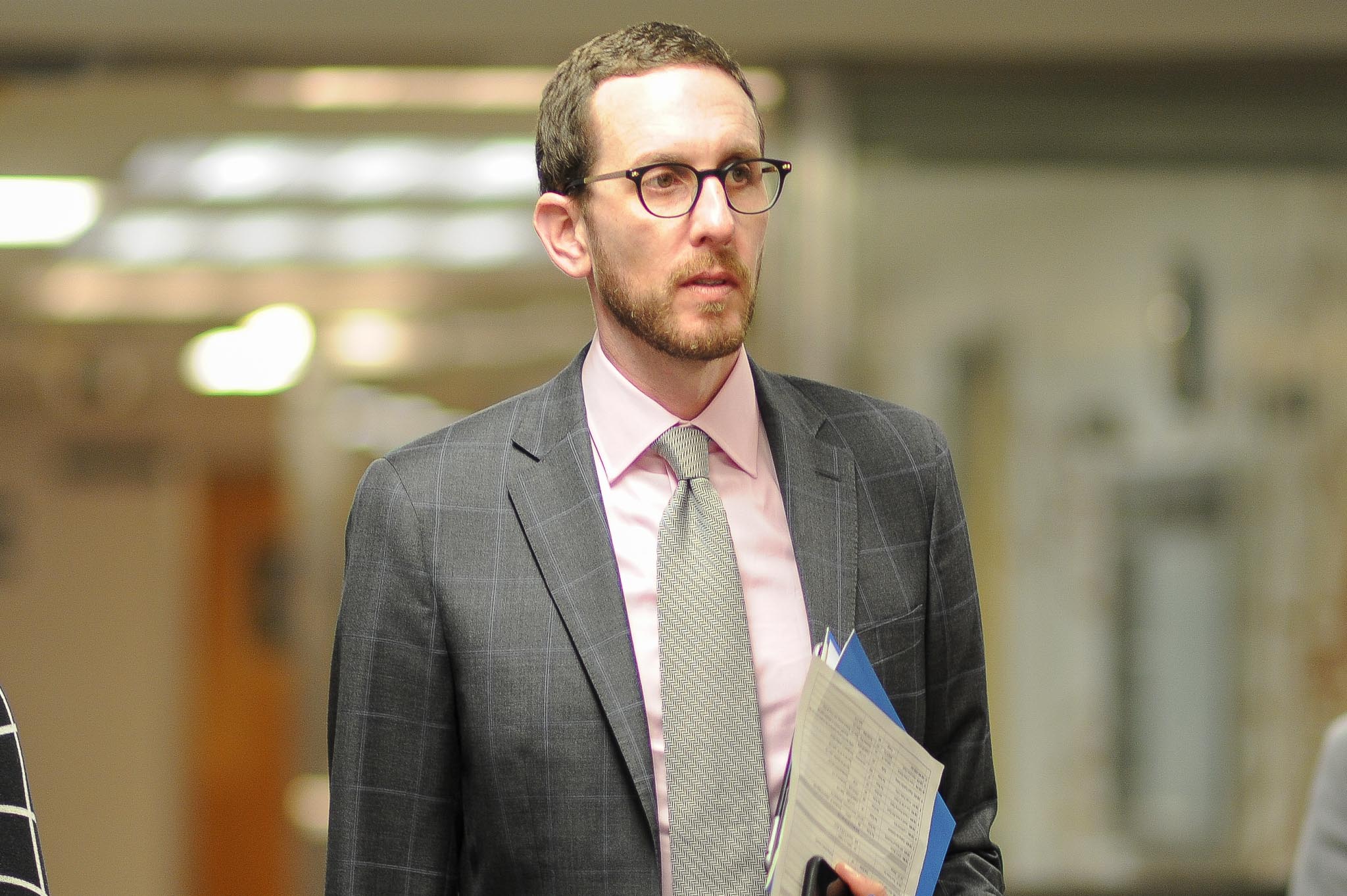
Senator Brian Dahle. (Kevin Sanders for California Globe)
Bill to Expand Number Of Officers Allowed To Give Hearsay Testimony In Court Passes Senate
SB 804 heads to Assembly
By Evan Symon, January 30, 2024 6:56 pm
A bill that would allow community service officers (CSOs) to give hearsay testimony in court passed the Senate on Monday, with only a handful of Democratic Senators either voting against the bill or abstaining from the vote.
Senate Bill 804, authored by Senator Brian Dahle (R-Bieber), would specifically allow a law enforcement civilian, also known as a CSO, to testify to the out-of-court statements of declarants offered for the truth of the matter asserted. This will allow the District Attorney to overcome hearsay objections as sworn officers have the authority to offer hearsay testimony.
Dahle wrote the bill because of how CSOs, or civilian officers who are frequently used for lower level crimes to assist the local police or sheriff’s departments, are used throughout the state. As many CSOs hear of, see, and respond to incidents before sworn police officers. Their ability to give hearsay testimony could be crucial in several cases. Even more, many rural areas of the state have CSOs who respond first and may be the only officer on scene of a crime for hours before the police come, meaning that they may be the only ones who can give testimony to a crime. Due to the current restrictions on CSOs testifying under hearsay rules, if they are called to court, current law requires that sworn officers re-interview old victims or ask the victims to attend preliminary trials to testify, potentially derailing an entire case.
“When sworn officers are forced to re-interview victims, already limited resources are further spread out,” said Dahle of SB 804 on Tuesday. “My district is very rural; sometimes, officers travel hours from one community to the next, which only exacerbates the problem. Additionally, victims will not be forced to relive past trauma by being interviewed a second time. It’s a commonsense bill, and a significant step forward in helping victims move on with their lives.”
CSO hearsay testimony bill passes the Senate
Originally introduced last year, the bill only made it past the Senate Public Safety Committee before being halted for the year. Brought back this year, SB 804 experienced some mild opposition from Democrats but nonetheless managed to pass the Senate on Monday in a 32-2 vote with 6 abstentions.
“There are always going to be politicians who are going to be dead-set opposed to the police, or in this case, law enforcement of any kind getting additional power,” Joe Rosa, a former CSO and police officer who now works as a security consultant, told the Globe on Tuesday. “This is just CSOs getting the same ability to testify hearsay in court. As a former CSO, I can say how this would have helped many cases against criminals. We were sometimes the first ones there, like disturbances when two people were yelling things to another or one of them off handedly mentioned something about another. You know, hearsay. Then in court, you couldn’t repeat that back even though it would have helped.
“Being able to do that now would be big. I get why some people oppose, especially after George Floyd when they don’t want police to be overreaching, or at least, how they perceive police to be like that. But this only helps people. It paints a bigger picture in court and can both help convict those guilty and help protect those people who are innocent. Plus, like this guy said, sometimes CSOs are the only ones there for awhile with any kind of authority. You need all the testimony you can get from them in those situations.
“This bill is an absolute good, and you can tell because the vast majority of Democrats and Republicans came together on this one.”
SB 804 is expected to be heard in the Assembly soon.
- Bill to Require Law Enforcement Disclosure if AI Was Used To Help Write Reports - August 7, 2025
- Gov. Newsom Files FOIA Request To ‘Expose True Cost’ Of L.A. Federal Troop Deployment for Anti-ICE Riots - August 6, 2025
- California Redistricting: How Newsom’s Plan Will Demolish Hard Fought GOP Gains - August 6, 2025




